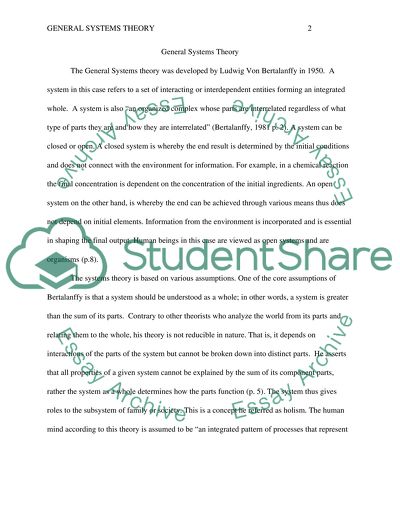A Systems View of Man-General Systems Theory Essay. Retrieved from https://studentshare.org/psychology/1457159-book-review-a-systems-view-of-man-by-ludwig-von
A Systems View of Man-General Systems Theory Essay. https://studentshare.org/psychology/1457159-book-review-a-systems-view-of-man-by-ludwig-von.


